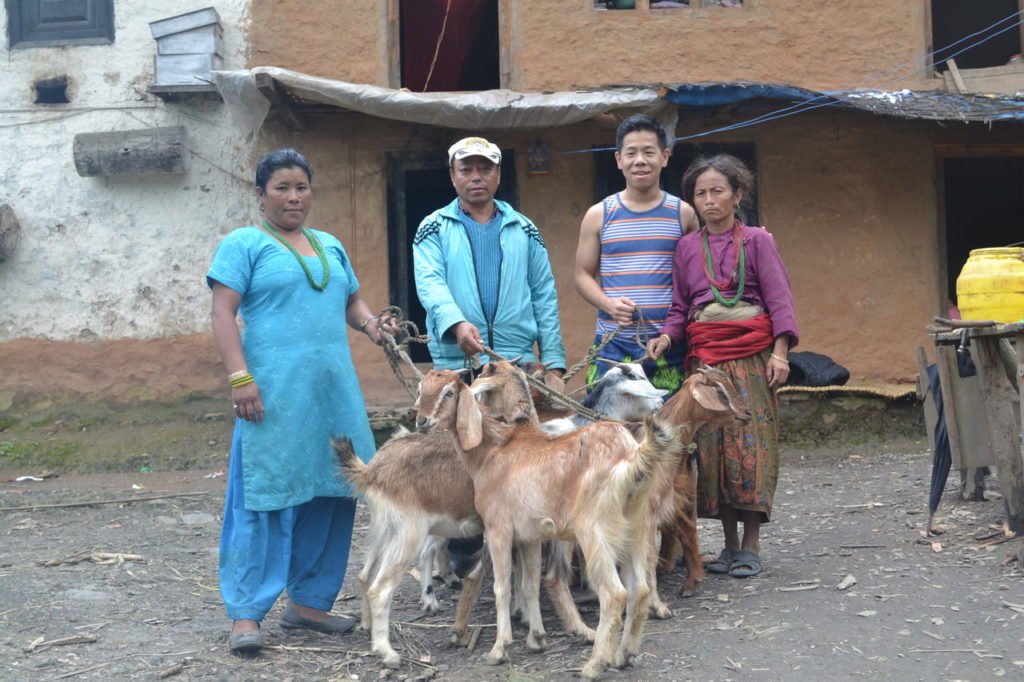Suntali Jirel
About This Project
After the first successful implementation of our cash crop production project in the eastern part of Nepal, Yang-Ward Foundation implemented its second project in the northern part of Nepal in Jiri, Dolakha.
Even though Jiri is near Kathmandu, the capital city of Nepal, the condition of single women there is no better than in remote parts of Nepal. In order to empower single women and become financially independent while contributing part of the proceeds to improving the educational facilities of a local primary school , we implemented a “goat farming” project with the goal of making it a self-sustainable project within a year.
Given the favorable weather conditions, market scope and availability of resources needed for goat farming, Jiri was the perfect place to implement this project. In order to ensure the success of this project, we adapted our previous model of partnering with a local school. The school management team is taking care of the project in the field and is the primary contact for project updates.
This project is based on a self-sustainability model. Eight female goats were provided in the first phase and they were expected to start generating revenue within a year. Until goats start bringing in revenue, salary was paid to the primary caretaker of these goats, while expenses for the goats’ food such as whole grain were paid by the foundation for a year. Since Jiri has lots of open pasture land, goats do not require whole grain on a daily basis, but are fed once they are pregnant and during the post-pregnancy period to make sure they birth and raise healthy baby goats.
Within a year, profits from sales of baby goats are generating income for Suntali Jirel, our first beneficiary of this project. This is the first income of her life. Suntali Jirel is expecting to sell more baby goats which will increase her income substantially. When we last visited her she was busy taking care of baby goats that were born recently.
Location
Jiri, Dolakha
Type
Goat Farming
Number of Children
2
Project Implemented Year
2014







